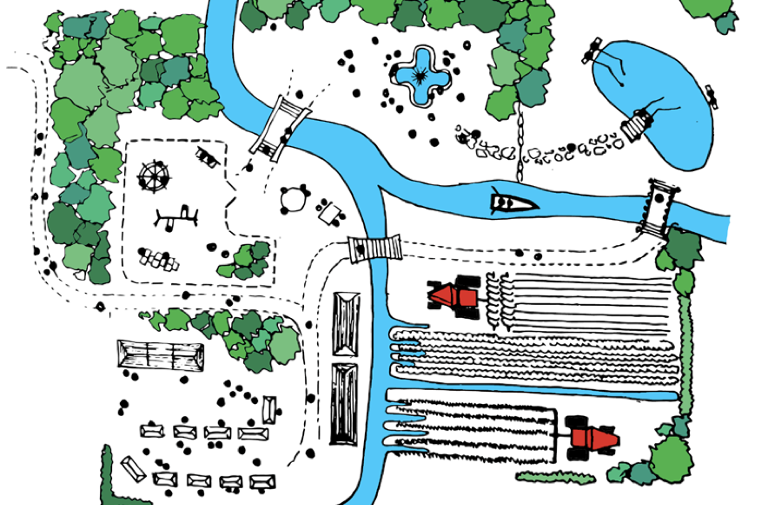There are thousands of community-powered initiatives in action across the UK. Projects to bring broadband to a rural place that wasn’t expecting it to arrive for years, generate renewable energy, or make the most of treasured local spaces or assets. Schemes to deliver addiction services, protect neighborhoods from natural disasters, or manage social housing in an equitable way. In none of these have the communities in question needed supervision from the state or transactions with big businesses.
In projects like these there is a growing body of evidence to suggest that even in unfavorable circumstances, people can get things done. All they really need is reason to trust each other and enough elbow-room to get to work without interruption.
This will not come as a surprise to the readers of Shareable’s newsletter, or the many communities that make use of its resources. But, extraordinarily, the potential of community power has, until recently, gone utterly unnoticed by the UK’s political establishment. Instead, a culture of power-hoarding and public infantilization prevails. This has resulted in a staggeringly over-centralized country. Local government has been denuded of power and resources over decades. And the command-and-control tendencies in Westminster and Whitehall dominate. This has resulted in a top-heavy governance system that struggles to mount an effective response to long-term challenges like educational or economic inequalities or immediate crises like the COVID-19 pandemic.
New Local’s latest report, Think Big, Act Small, is an effort to bring the UK’s establishment to its senses. It draws upon the work of Elinor Ostrom – who won the Nobel Prize in economics for showing how communities can solve problems “beyond markets and states” – to unpack a series of insights about the conditions that allow communities to rise to meet the challenges that they encounter. The report argues that in many cases people-powered, local, and small-scale responses can outcompete privatized or government-run alternatives.
Ostrom is the perfect intellectual hero for this moment. Her work completely disrupted many standard academic assumptions – about the likelihood of communities having the will and the incentives to build sufficient trust to collaborate effectively, and to arrive at mutually desirable ways of doing things by properly talking to each other. Given this, it’s even more surprising that in places like the UK so many of her insights have not been taken into account.
Ostrom shows us that when communities originate ideas and approaches, or have a bigger say on the things that really affect them, distinct benefits emerge: the people who are best-placed to understand what is needed in a particular place are playing a part in seeing it come about. This also ensures people have much stronger stakes in the resulting system, which builds legitimacy and makes cooperation more likely.
In a time of political polarisation and tenuous trust in institutions, putting people in the driving seat has the potential to reset the balance. This means a more place-based and full-blooded kind of democracy, where people are encouraged to invest time in their neighborhoods and take on the duty and privilege of a citizen’s place in society. For Ostrom, we are not customers, users, or dependents. We are each participants: co-authors in our own flourishing and that of those close to us.
Think Big, Act Small also delves into Ostrom’s ideas around polycentricity – the messy, layered, complex product of any scenario where empowered communities are able to establish their own systems and approaches. Ostrom would have us celebrate, rather than fear, this source of diversity and differences from place to place. Not only the rich differences between individuals and groups, but the extraordinary variety that can emerge as communities in different places solve problems or come up with new ideas.
What works perfectly for one community, or in one particular place, will not necessarily do the job on the other side of the country – or even in the next town over. To find out what works where, people and places need the freedom to try different things, experiment, and get creative. The powers that be must learn to let go – with the state and the private sector playing to their own strengths and leaving space and time for communities to innovate and participate wherever the will exists to do so. The patchwork of different systems – overlapping, layered within each other, and varying from place to place – might look like a mess. But orderliness isn’t always a recipe for success.
It is hard to imagine a more hostile environment for the emergence of real locality, autonomy, and diversity than the UK. Nevertheless, like green shoots forcing their way through cracks in concrete, Think Big, Act Small catalogues the community groups and projects that are already making the case for a very different way of doing things.
The report’s recommendations include embracing the case for real community rights, devolving power away from the centre, and facilitating people-powered ambitions at every level. They are targeted at improving the chances for community efforts and creating the conditions where more such initiative can begin to emerge. We invite our readers to imagine what these groups could achieve with the wind finally at their backs.
Through overnight upheaval or piecemeal change, Think Big, Act Small confirms that a community-powered revolution – a new paradigm – is possible. Ostrom’s insights can inspire new approaches and help us to win the big policy arguments at the national scale. Given the challenges ahead, one thing is clear: the status quo will not do.
‘Think Big, Act Small: Elinor Ostrom’s Radical Vision for Community Power’ is published by New Local.
This article is cross posted with permission from Shareable.net.
Teaser image credit: New Local





